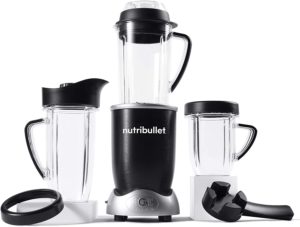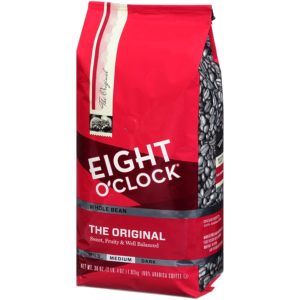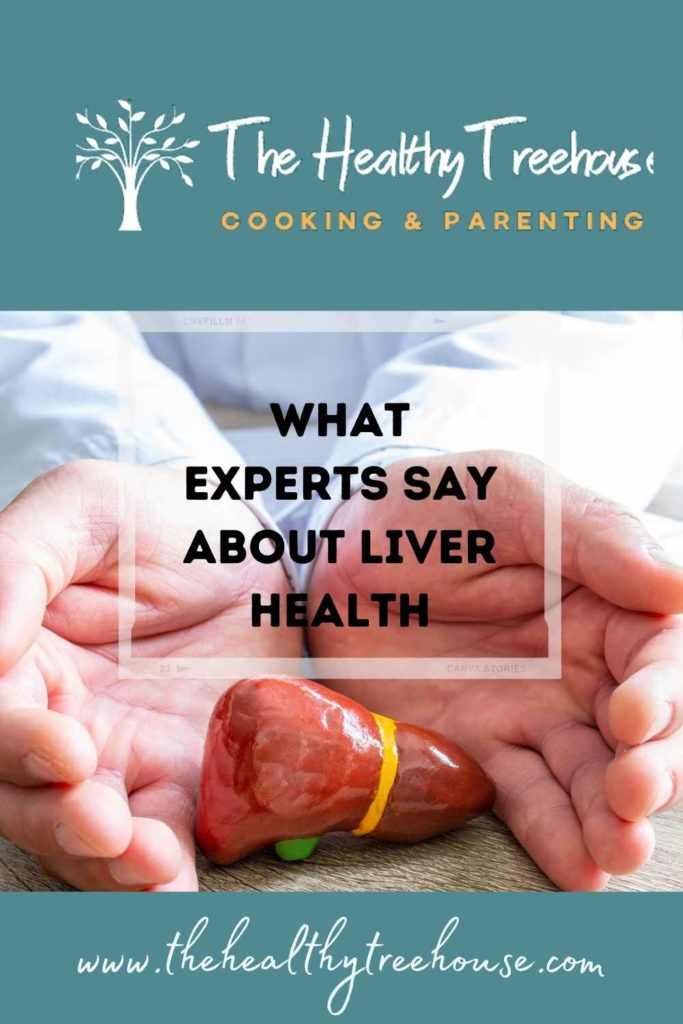
Experts may have different views on liver health. While one may tag a specific food as healing, others may see it otherwise. The Internet offers a plethora of resources for liver health. From the conventional to the most unconventional, it can be confusing.
Sometimes you may feel like a kid lost in a big candy store. You’ll get confused on what lollipop to pick. What to do?

Who do you listen to
There are a lot of competing voices in the health community, which can be confusing when they disagree with each other.
Below we listed several popular sources of information and listed our summary of their advice on liver health. Some are controversial, but so was the argument that the Earth revolves around the Sun at one time. On the other hand, not all new ideas are better than the old.
It creates a dilemma… who do you listen to? How do you know what to do?
I do not pretend to know more than the people listed below. Instead, I do suggest that you have an open mind and listen to your body. Your body often knows what it needs and will react positively when you give it what it needs to be healthy.
Lifestyle choices are often listed as the primary cure for many chronic diseases like Fatty Liver Disease, Histamine Intolerance, and many gut and heart diseases. My experience is that when “lifestyle” choices are listed as a primary driver to heal a condition, then you have entered a territory where conventional medical advice might not be the correct advice for everyone.
I have tried advice from each source below. Some helped me while others did not.
What worked for me, though, might not work for you. So, instead of telling you what I did and suggest that you do the same, I suggest you try what feels right to you and your medical practitioner.

Dr. Ray Peat Advice on Liver Health
Dr. Ray Peat (often simply called Dr. Ray) is a contrarian that seems to be the source of many of today’s more controversial health opinions. He was most active in the 1970s, and it can be hard to find comprehensive compilations of his opinions on any given topic. His supporters staunchly support his findings in many health forums even today.
Dr. Ray believed that the liver is involved in almost all the chemical processes in our body. Thus, maintaining a healthy liver is vital to keep your entire body functioning well.
He also mentioned an unconventional approach to a liver cleanse diet. When asked about milk cleanse, this is what he had to say: “Milk has antibiotics, anti-inflammatory compounds, and nutrients. As such, milk is almost a complete food and lacks just iron.”
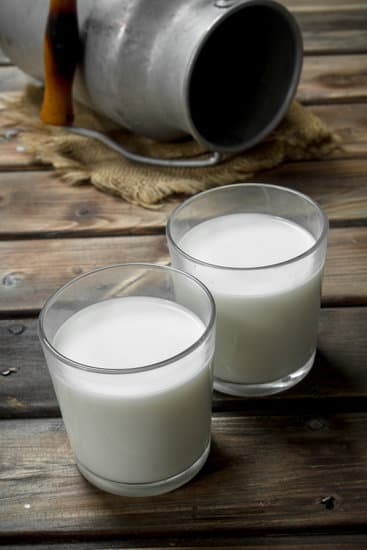
He finds the milk cleanse useful for a liver cleanse if used for a week or up to a month. Longer than that, an adult can develop iron deficiency.
And a high calcium diet can restore energy production. Thus, a diet with sufficient calcium, such as a milk diet can help amp up the liver’s detoxifying process.
That’s why in another interview, Peat said that Calcium and Vitamin D also has a crucial role in fat suppression in the human body. He also mentioned a few animal studies showing that Calcium and Vitamin D could correct fatty liver. He believes that Calcium and Vitamin D can improve any form of liver and kidney sickness.
Dr. Peat also mentioned that proteins and vitamin B improve the detoxifying ability of the liver. And if Vitamin B and protein levels in the body decrease, it reduces the liver’s detoxifying capacity. Consequently, it ends up with progressive liver inflammation and fibrosis.
And when left untreated, this fibrosis can lead to liver cirrhosis, which results in acute lung inflammation. Thus, foods having proteins and vitamin B are vital for a healthy liver.
Peat has also written that the high consumption of poly saturated fatty acids is also one of the reasons behind the fatty liver disease. That’s why he gave caution on the consumption of fish and fish oils. He mentioned that polyunsaturated fats are very delicate and become rancid quickly.
Hence, consuming salmon fish, legumes, leafy green vegetables, milk, fresh fruits, and protein is necessary for optimal liver function and fatty liver prevention.
Our take on Dr. Ray Peat’s Advice
Milk is indeed an almost complete food item, but it lacks iron. But, if you’re going to consume only milk for a week or a month, not only might this result in iron deficiencies, you can also develop other nutrient imbalances, especially if you cannot tolerate milk.
Even the more gluten-friendly goat’s milk can cause bloating, flatulence, upset stomach, and diarrhea. And once your gut is inflamed, you’ll not be able to absorb the nutrients from the foods you consume.
Too much dairy can lead to flatulence and gassing. And this irritates your gut. Hence, it can also harm your liver in the long run. Also, there is no known scientific evidence that milk alone can cleanse the liver efficiently.
A colorful plate of leafy green veggies, beets, citrus fruits, and berries is still better to support liver health.
Fatty fish and fish oils are necessary for the overall functioning of your body. And there is scientific evidence that omega 3 fatty acids do the liver a lot of good.
And, of course, you can’t eat fatty fish daily. You have to be cautious and consume fatty fishes with lower mercury content, such as what we have in our recipes, like wild salmon and mackerel. Thus, we have a myriad of healthy liver superfoods so that you will have more variety.
And omega 3 fatty acid becomes rancid quickly if it’s in cheap liver supplements.
Matt Blackburn’s Advice on Liver Health
Matt Blackburn is a contemporary health podcaster that explores health topics. He is not a doctor but instead has amassed a body of knowledge through self-experimentation. Blackburn owns a health food supplement business called MitoLife. He advocates many of the same ideas as Dr. Ray (Blackburn).
Blackburn recommends a high protein diet to support the liver. Blackburn advocates the intake of more red meat and he doesn’t treat sugar and carbohydrates as the nemesis of liver diseases. He mentioned that it might even help your liver digest sugars better.
Blackburn recommends a high protein diet to support the liver. Blackburn advocates the intake of more red meat, and he doesn’t treat sugar and carbohydrates as the nemesis of liver diseases. He mentioned that it might even help your liver digest sugars better.
He mentioned that the liver could not store glycogen properly is the ratio of saturated to unsaturated fats. Blackburn stressed that if you came from a traditionally healthy vegan-like diet with less saturated fats and more polyunsaturated fats, it would make it hard for your body to digest sugar. Thus, your liver will not function properly.
Instead, Instead, Blackburn noted that a diet higher in saturated fat from red meat and lower in PUFAs can help your body metabolize sugar better, so there isn’t a need to restrict your intake of carbs and sugars.
Blackburn also recommends adding more fructose in the form of fruits and dairy to your diet. He isn’t also a fan of natural liver supplements like milk thistle. Instead, he recommends dry grass-fed liver in capsule form.
He has the same stance as Dr. Ray Peat when it comes to adding dry grass-fed liver to your diet. This will help your liver and entire body function properly.
Our take on Matt’s Advice
There is scientific evidence that excess saturated fat, carbohydrates, and sugar are detrimental to your liver health. An excess of these compounds can disrupt the balance and absorption of the other nutrients that your liver needs. Thus, we don’t advise the intake of red meat daily.
But we do recognize the role of healthy lean protein to keep the liver functioning well because we can only get a biological source of protein from animal sources. But you should only eat red meat twice a week, and you should get your protein from other sources as well.
For instance, wild-caught salmon offers a biological source of protein. At the same time, It’s high in omega-3 fatty acids that have healing effects on your liver and heart. Blackburn has rightly warned against polyunsaturated fats (PUFAs, noting that they can do more harm than good to your liver.
The MayoClinic agrees, “To exchange [saturated fatty acids] SFAs with PUFAs is not a wise decision either. Today, food rich in PUFAs is dominated by vegetable oils from soybeans, corn, and sunflower, all of which are rich in linoleic acid.” And that is bad. Linoleic acid has been linked to various cancers.
Where we question Blackburn’s assertion is his inclusion of Omega-3s in his PUFA warnings. If taken in its proper proportions, Omega-3s can protect your liver. Admittedly, you need to balance your Omega-3s and Omega-6s. Too much Omega-3 can disrupt the absorption of the other nutrients which the liver also needs.
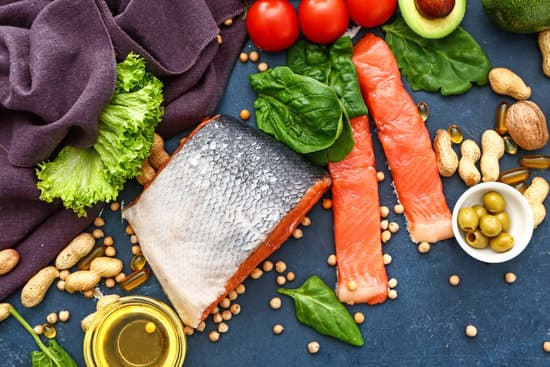
How much Omega-3s versus Omega-6s do you need? That is a matter of current scientific debate. Historically, our ancestors ate anywhere from a 4:1 to a 1:4 ratio of these fatty acids. So, the range can be fairly wide.
We agree with Blackburn’s assertion that diets, especially keto that can deprive your body of carbohydrates for a sustained period, are bad. Incremental fasting or short-term use of keto can be beneficial for some conditions.
Too many carbs and sugar can still cause fatty liver diseases. That’s why we also have several healthy keto recipes on our site. These low-carb meals fuel the body without dumping too many sugars on your liver. It’s not good for your overall health as well.
Dr. Hyman’s Advice on Liver Health
Dr. Hyman is the Head of Strategy and Innovation at the Cleveland Clinic. His opinions are much closer to the mainstream “establishment” (below) medical stances than our two health advocates mentioned above.
He is known for his belief that we can treat all body illnesses through natural foods. He is one of the best health advisory speakers seen on different TV channels, talks shows, and in newspapers. He has also written several books related to various health issues.
According to him, most people are damaging their liver without even knowing about it. In one of his public talks, he described the whole mechanism behind the fatty liver disease. Dr. Hyman said that it’s not fat but sugars that are the real cause of fatty liver disease.
He also mentioned that we provide more sugar to the body when we take a large amount of sugar as fructose corn syrups, processed foods, and white flour. Thus, lipogenesis (formation of lipids from sugar) starts, which is a normal reaction of the human body. However, when we take too much sugar, our lipogenesis index increases.
Consequently, the accumulation of fat will lead to fatty liver disease. And suppose you have diabetes or are pre-diabetic. In that case, this fat gathers around your belly, leading to obesity, high triglycerides ratio in the blood, and an increased risk of a heart attack.
Dr. Hyman reiterated the importance of keeping a healthy liver. Fatty liver disease can cause several diseases such as increased blood sugar levels, inflammation, and pre-diabetes conditions. It also makes your visceral fat high. So it’s not just your liver that’s going to be fatty. Other internal organs, such as your heart, can also have more fat around them.
And more than fat, Dr. Hyman attributed fatty liver disease to carbohydrates, particularly sugars. Excess sugar and starch contribute more to a fatty liver than does fat. And he outlined high fructose corn syrup as one of the deadliest things that you can feed your body. By all means, avoid the combination of ultra-processed foods laden with sugar. Some may not taste sweet outright like prepared dressings.
Dr. Hyman warned about these deceitful food products. He also cautioned about complex carbohydrates. Some whole grains can still be quite starchy and can aggravate fatty liver.
Dr. Hyman also stressed the importance of adding healthy fats to your diet. It can help speed up your metabolism and keep your hunger pangs at bay. Even saturated coconut oil can help your keep the liver healthy. Dr. Hyman also states that good-quality fats have immensely productive anti-inflammatory action. And if used with a low-sugar diet, they are tremendously helpful.
Hyman said that onion and garlic are excellent detoxifiers as they are full of Sulphur, so you can also use them in your diet. You can read much more about Dr. Hyman’s thoughts on his website.
In a nutshell, to get your liver back on track, Hyman suggested you add these to your plate:
- Non-starchy vegetables
- Nuts
- Seeds,
- Some top-quality animal proteins, for instance: fish, chicken
- Good quality oils like coconut butter, olive oil, and MCT oil
- Avocados
- Broccoli
- Reddish
- Sugar beet
Our take on Dr. Hyman’s Advice
We have very similar views with Dr. Hyman. Gluten, starch, sugars, and processed foods are among the group of foods that you should avoid for optimum liver health. And a low-carb diet is also one of the best diets you can follow if you have fatty liver. Hence, we advocate a gluten-free, low-carb diet with a sufficient amount of lean proteins, lots of fiber, and good fats.
We stress the importance of choosing the less starchy complex carb such as quinoa and millet because not all whole grains have a low carbohydrate content.
We also believe that good fats such as the ones you can get from avocados and olive oil can help cleanse the liver and reverse fatty liver disease.
And we can get potent protection from liver superfoods such as cruciferous and leafy veggies. These can support liver health and they can even repair your liver. And Dr. Hayman stressed the importance of consuming at least one to two cups daily of these superfoods for optimum liver health. We also think that these liver superfoods can have a significant impact on your liver health.
We also agree that sulfur-rich foods like garlic can help cleanse the liver. That’s why we have included garlic as one of our liver superfoods. And we have tons of recipes loaded with these potent compounds.

Dr. Michael Greger’s Advice on Liver Health
Dr. Greger advocates a whole plant-based diet. He is against any consumption of meat. And according to Doctor Gerger, non-alcoholic fatty liver disease is one of the most frequently reported chronic liver diseases; and the prime factor responsible for it is obesity.
He says that it is so common that even70-80% of obese children also suffer from fatty liver disease. In his opinion, three factors contribute to the occurrence of fatty liver disease:
- Surplus fats in the diet
- Excess sugar in the diet
- Already present excessive fat in the body
Michael Greger further attributed the rising causes of non-alcoholic fatty liver disease to increased intake of saturated fat and cholesterols, specifically animal proteins.
Dr. Gerger says that studies have proven that when you eliminate sugar from the diet of fatty liver teens, they have shown a significant amount of recovery.
He further mentioned that saturated fats are also one of the biggest causes of fatty liver disease. He quoted research, in which selected random people were put on trial tests with the same low-calorie diet. One group had a low-fat diet, and the other had a high-fat diet. The group with a low-fat diet reduced their liver fat to 20%, while those with a high-fat diet increased their liver fat to 35%.
That’s why you should also avoid refined starch and sugar. Studies have shown that even those embarking on a keto diet void of carbs but rich in saturated animal fat still resulted in fatty liver disease. That’s why a very low carb diet and a high-fat diet can also exacerbate one’s risk of fatty liver disease. Saturated fat can increase fat in the liver faster than sugars and refined carbs.
The best way to prevent and prevent liver disease is by eliminating saturated fat from animal sources, refined carbs, and sugars (with high fructose corn syrup the deadliest of all sugars). Greger also stressed that consuming sodas can lead to insulin resistance and lead to nonalcoholic fatty liver disease.
And one does not need to eliminate whole grains from their diet. Michael Greger further pointed out evidence on how whole grains such as oatmeal can support liver function.
Greger believes that a plant-based diet is the best diet that can help protect your liver. Getting your protein from beans and legumes can help prevent fatty liver and prevent cardiovascular diseases. According to studies, the leading cause of death among people with nonalcoholic fatty liver disease is CV.
It kills more nonalcoholic fatty liver disease patients more than cirrhosis. Saturated fats also cause more scarring in the liver cells. And because saturated fats also start to accumulate in vessels and the heart and ultimately leads to a heart attack.
He also mentioned that eliminating fast foods and adhering to a Mediterranean diet can offer the best liver support. And Greger stressed that we could prevent fatty liver disease by avoiding or limiting fat-containing foods like cheese, butter, fast foods, beef, and sugar-rich foods like processed flours, pasta, and fructose corn syrups containing foods.
That’s why people who use more vegetables and unsaturated fatty acids in their daily eating have fewer chances of developing a fatty liver. You can find more about Dr. Greger’s thoughts regarding fatty liver on his website.

On the other hand, Dr. Greger’s stance on meat contradicts that of Dr. Hyman’s. For Dr. Hyman, red meat perse isn’t bad for your liver, heart, or your overall health. It depends on where that meat is coming from.
Hyman noted that meat that comes from factories or those industrially raised are the bad ones. These meats have a lot of antibiotics and hormones. They also have more omega 6 fatty acids from corn and are deficient in omega 3 fatty acids. And these compounds are harmful to your liver and your overall health.
Thus, for Hyman, if you’re going to consume grass-fed beef, then it is by all means healthy. He further mentioned that meat doesn’t produce stearic and palmitic fatty acids( saturated fats that can cause a lot of diseases). Instead, the liver produces these two harmful compounds from carbohydrates and sugar. Thus, a low carbohydrate diet with sufficient omega 3 fatty acids can lower your saturated fat intake. So it’s not necessary to skip red meat altogether. You have to avoid eating industrial grain-fed beef.
Our take on Dr. Greger’s Advice
Refined carbs, saturated fats, and sugars can make your risk higher.
Like Greger, we eliminated these foods from our meals. And replacing saturated animal fats with beans, legumes, and soy can also protect your liver and heart. Adding cruciferous and leafy veggies, and superfruits can also support liver health.
But while Greger advocates getting your protein from plant-based sources, it’s a must to add fatty fish to your diet, such as wild-caught salmon. We can still get protein of a higher biological value from fish than plants alone.
It’s a liver superfood and contains a hefty serving of omega-3 fatty acids. Thus, incorporating a vegetarian meal with enough protein from safe fatty fishes may give more potent liver protection than a vegan diet alone. And we also agree that a Mediterranean diet can offer the best liver support.
Like Michael Greger, we also don’t recommend a very low carb or no carb diet unless prescribed by your doctor or nutritionist. Whole grains become simpler forms of carbs, aka sugar, in the body. But too many simple carbs can result in damage to the liver.
So even if they are the healthier carbs, you should still limit them. Hence, the lower carbohydrate grains will prevent this abundance of simple sugars in your body.
The Establishment’s Advice on Liver Health
We used the term “Establishment” to indicate the consensus we see in the most respected and most conservative organizations like Harvard, Stanford, Johns Hopkins, and Mayo Clinic (just to name a few). These organizations tend to agree with each other, so we lump them together.
The primary risk factors of non-alcoholic fatty liver disease are high intakes of fat and sugars in the body and obesity. These reputable sources further state that, among the bad fats, triglycerides and saturated fat seems to have the worst implications on liver damage
Fatty liver is quite common, but when left untreated, it can lead to cirrhosis. And according to these institutions, the exact cause of the fatty liver disease is unknown. However, some factors are common in their findings. People who suffer from fatty liver disease mostly have:
- High triglycerides in the blood
- Insulin resistance or type 2 diabetes
- Obesity
- Hypertension
- Metabolic dysfunction
And alcohol is still the number one risk factor for alcoholic fatty liver diseases. So if you often drink alcohol, even if you just started drink for a month, you’re still at a higher risk.
Thus there is a need to limit the intake of saturated fats and simple sugars. That’s why those with elevated blood sugar levels are also more susceptible to getting liver diseases because they cannot metabolize sugar properly.
So foods higher in sugar content like bakery foods, processed flour, red meat, fried foods, and sweet desserts containing cream, cheese, and sugar should be avoided to prevent fatty liver disease.
These institutions have also mentioned that avocados, olive oil, coffee, green tea, garlic, fresh fruits such as berries, and vegetables should be added to the diet to improve fatty liver disease. They also believe that exercise and walk can help manage any illness like fatty liver disease.
WebMD and Mayo Clinic encourage a diet with healthy grains, fewer animal fats, less sugar, and more fruits and vegetables. But it contradicts the recommendations of wellness experts such as Matt Blackburn. Instead, Blackburn recommends eating more saturated fats from animal sources.
Sources like Medline Plus also said that omega 3 fatty acids could reduce triglycerides levels. And lower triglycerides can help reverse fatty liver symptoms. But Dr. Ray Peat advised against the use of polyunsaturated fatty acids such as omega 3. Medline Plus also recommends limiting sugar intake, while Dr. Blackburn mentioned there isn’t any need.
But there are also health experts like Dr. Gregg who agreed that a diet with mainly protein sources from plants is the best diet for your liver. And like Dr. Hayman, Harvard agrees that a “Green Mediterranean” diet can help prevent fatty liver disease.
So adding cruciferous veggies to your daily plate will give your liver potent protection from fatty liver diseases.
Our take on the Establishment’s Advice
The early stages of the fatty liver may go on unnoticed since it does not present noticeable symptoms. That’s why it’s crucial to lose weight if you are obese. A healthy lifestyle and diet will only help with recovery. It might also help reverse the effects of alcohol and non-alcoholic fatty liver diseases.
We agree that a high-fat saturated intake and excess carbs and sugars are risk factors. And a high carb intake also causes elevated triglycerides. That’s why a low carbohydrate diet with liver superfoods such as cruciferous veggies and colorful fruits can help support liver function and reverse symptoms of fatty liver.
There can be a multitude of advice and recommendations on what foods can offer the best liver support and what foods are harmful. Recommendations from the experts can even contradict each other.
We say that everyone’s body can be different. And what might have beneficial effects for some may have ill effects on you. That’s why it’s best to see your doctor before undergoing any unconventional dietary programs.
Final thought
I have learned to listen to the advice of medical experts but not be bound by it. I pay attention to my body and let it tell me when something is healthy.

Most of the time, I have found the medical establishment to be more right than wrong. Still I have cautiously experimented with suggestions from each of the practitioners listed above with beneficial results.

